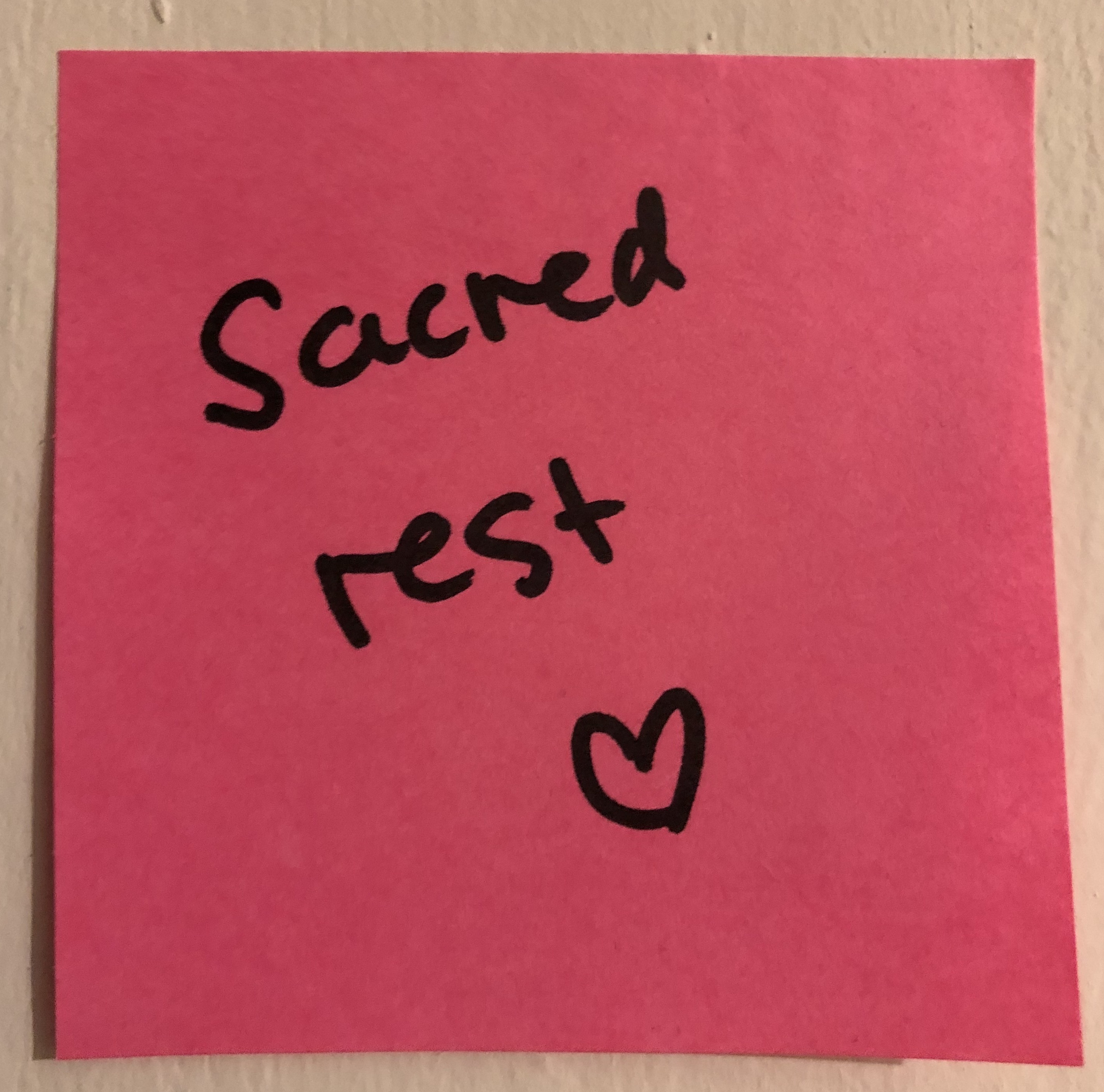Before you read any further, I need to note that this post isn’t meant for everyone, and I think that’s okay, though it does raise some inherent, unavoidable contradictions.
Some context: Last year, I was part of an NSF grant proposal related to a project that’s been around for over 20 years and is coming to the end of its current pot of funding. As a team, we all agreed that our project was behind the times when it comes to explicitly addressing equity, diversity, and inclusion (EDI – as an aside, I know that’s not the typical order of the letters, but I like the reasoning of putting “equity” first as the goal of inclusion and diversity [1]). We wanted to use this new proposal as an opportunity to make EDI an explicit part of our project, so we worked with a consultant to help us critically reflect on our processes and project designs. This work was relatively new to my two White colleagues. For myself, I had some amount of experience with critical self-reflection from my prior work addressing EDI in academic departments, research involving culturally responsive and relevant curriculum, and coursework.
After the proposal was submitted, my colleagues remarked how they weren’t prepared for what it meant to do intensive EDI work, and we considered how we might share our experiences with our other colleagues.
And that brings me to this post: as part of reflecting on the process and how I might discuss the process of doing EDI work with others, I needed space to process my own thoughts and write them down. But that also brings up the aforementioned inherent, unavoidable contradictions. I identify as a multiracial cis-gender woman, as part of the LGBT+ community, and as both a scientist and a crafter/maker. Yet my “multiracial”-ness stems from the fact I am half HongKongese and half Irish/Welsh/American, with a very much White-passing complexion. In many ways I am highly privileged. Yet the goal of EDI work is to center the most marginalized voices, and so writing an article about my experience runs counter to that goal. But at the same time, as my colleagues pointed out, they felt they would have been able to engage better with the EDI work if they had a better idea of what to expect.
Separately (relatedly?), I find it hard to write or present about anything related to EDI in a way that can work for all audiences. Instead, I’d rather be clear on who I hope something is useful to (though I welcome feedback from everyone!). In this case, my imagined audience is someone with dominant/privileged identities who has some awareness of EDI and is about to begin engaging with some intensive EDI work.
And with that preamble, here’s some reflections on my experience. Not everyone will experience or react to these things in the same way as me, and there is no “this is the way” or “one size fits all” for this kind of work.
Expect to be uncomfortable
As someone from a STEM background, I’m mostly used to the idea that learning can be uncomfortable [e.g., 2, 3]: essentially, when you learn something new, you’ll initially struggle and be bad at it, whether the topic is quantum mechanics, calculus, or computer programming. It takes a lot of practice to get good at something, and that process involves a lot of failing and stumbling.
However, the “discomfort” from EDI work is a very different feeling. We live in a society that has structures and systems that were developed in a way that was biased towards certain groups, and even though the legal basis for doing so has been (largely) eliminated, those structures and systems persist to this day. A recent National Academies report [4] explored this in detail and called for STEMM (science, technology, engineering, mathematics, and medicine) organizations to actively address these systems.
Learning about these realities leads to some very harsh realizations. Those of us who have identities that are not marginalized have likely benefited from these systems, and also have probably contributed to these systems. For example, I used to advocate for STEM outreach programs that target women and people of color with the goal of “increasing interest” in STEM (which is also a deficit framing), without paying any attention to the realities of STEM that push out and exclude those students. Another example is that I’ve generally been in departments where I had access to mentors who looked like me (cis-female, White-passing), and I haven’t had to go through the thought process of how to communicate or relate to a mentor who didn’t look like me.
Those realizations are uncomfortable. How many students have I hurt by assuming they weren’t actually interested in STEM? How many students did I impact and convince to pursue STEM, only for them to then hit barriers that harmed them and pushed them out? How many students could have excelled in STEM but didn’t have the mentors to support them? How have the standards and expectations we set in STEM denied creativity and de-valued students’ skills and expertise?
Doing EDI work means making peace with the fact that there will be A LOT of uncomfortable realizations, and that is a part of the learning process. I’ve sometimes seen this sentiment framed as “be comfortable with being uncomfortable”, and that’s honestly how I first heard this bit of advice, but I personally prefer the framing of “expect to be uncomfortable”. The idea of “becoming comfortable” doesn’t sit right with me – while it is something that’s an expected and regular part of the work, I don’t like the connotation that it becomes something you’re “okay” with happening. Instead, every instance of discomfort needs to be an alarm bell or a red flag because it means there’s something there that needs to be questioned.
Separating “guilt” and “blame” from “responsibility”
This one might be the most “your mileage may vary” item in this article, but for me, this helped initially as a way to process the discomfort of EDI work. I found that the worst discomfort was over the idea I may have unintentionally caused students harm. I got involved in education research specifically because I wanted to make sure students had better experiences in STEM. How could I have done something so opposed to what I believe in?
For me, one article that helped re-frame my thinking was “White Complicity and Social Justice Education: Can One Be Culpable without Being Liable?” by Barbara Applebaum (2007) [5]. The article’s legalese-like interpretation of culpability and liability appealed to me because of my background in things like high school debate (which itself is probably something to think about, with norms of competitiveness, but that’s a separate article), and it helped me re-frame the blame and shame that I was feeling. Applebaum argued for a distinction between culpability and liability. Because we live in a racialized and biased society, dominant (White) individuals will take actions that reinforce systemic bias without knowing their actions have that impact. However, once they (reasonably) should know something has an impact, only then are they responsible and liable for doing better.
So, sometimes when I’m feeling particularly uncomfortable because I realize I have helped to reinforce marginalization – like when I read about how many active learning strategies implicitly support assimilation to Western norms of debate and communication, and many of the curricula I’ve worked on emphasize active learning [6] – I ask myself whether my lived experiences would have shielded me from knowing what I was doing was wrong. Usually, the answer is “yes”, but now that I know, I have a responsibility to do better, e.g., talking with colleagues and rethinking my own approaches.
Expect to question everything
Given what I’ve learned about the ways I’ve been unintentionally complicit, I also consider it a responsibility to do what I can to identify potential blindspots gaps of knowledge (note: I left the strikethrough in because I only realized the ableist language when revising this article [7]). This responsibility can take many forms, such as reading articles or watching webinars to learn from experts, but another form is questioning everything, especially with the help of a consultant or a critical friend [e.g., 8].
For example, when designing curricular activities, I ask questions about whose knowledge is present, and what kinds of skills or knowledge is “valued” for grades. Or when designing a process for reviewing applications, I ask questions about who is able to submit applications (since the process itself can serve as a gatekeeper) and what characteristics are “valued” in the selection process. Some of these questions can get at the very foundations of a project: Who decided the particular issue being addressed is something of value? Who was included in determining this was the “best” approach to take towards addressing that issue? And honestly, sometimes, these are questions I can answer but can’t (directly) affect, but even in those cases, I think it’s important to ask the question and acknowledge the issue.
EDI work is never done
I sometimes joke that I’m attracted to the kind of work where if we were completely successful, that kind of work would no longer exist. If we could fully address EDI concerns, then someday, theoretically, we wouldn’t need to focus on EDI. But unfortunately, that’s sadly not how the world works. I don’t think it’s hopeless – I genuinely think I can make a difference – but we’ll still be doing this kind of work for a long, long time.
So, this means the process of learning (and unlearning) never ends, and we can always do more to identify ways to address systemic biases. And since there’s aspects of the system I have no agency over, I can always work on finding better ways to mitigate those systems and/or finding ways to increase my ability to affect those systems.
And all of these things can be iterated on, especially as the landscape of EDI work in general continues to evolve and change. One of the things I’ve been pushing for on my projects is to do a better job of being transparent about our successes and our failures, especially on issues related to EDI. While everyone’s path is different, sharing that information can provide inspiration and/or identify obstacles to help those who want to pursue their own EDI journeys.
Part of me wonders, and another part worries, what I will think if I revisit this article in a year or three. Will I still think this is a good article for the intended audience, or will I cringe at what I wrote and consider this article to be a “failure” on my EDI journey?
But that’s not an excuse to put off the work – I have a responsibility to do the best I can, and to keep learning so I can do better.


